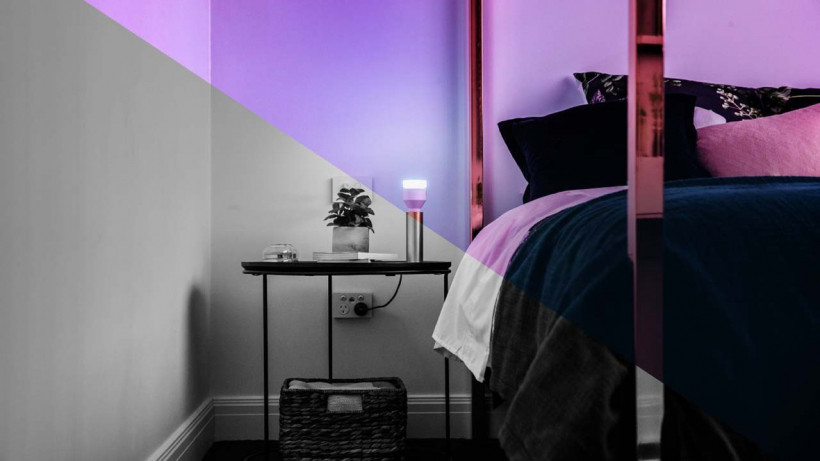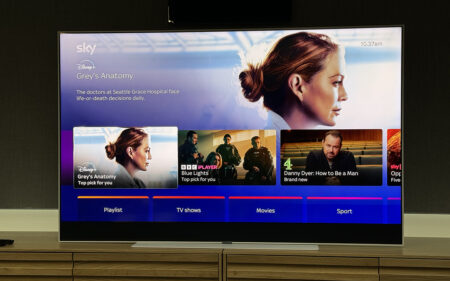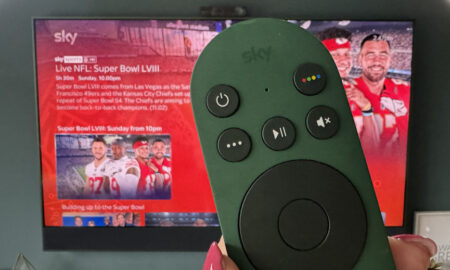Early adopters, as you were
Alexa, Google, Siri; the tech giants are knocking on our doors. They want to control our smart homes and – with our smartphones, our smart speakers, our TVs and tablets – we’re letting them in whether we realise it or not.
What are their plans, just where are they going to stop and what’s it going to mean for all those one-device startups out there? How will they survive when a juggernaut like Google owns the competition?
Controllers versus kit
Well, those fearful of getting an Apple-branded chip implanted in their brains can breathe a sigh of relief – at least for now. The big boys’ interest in what goes on underneath our roofs is, apparently, only skin deep, according to Ian Hughes, senior IoT analyst at 451 Research. We’re not about to be forced into buying Google light bulbs, Apple thermostats, Microsoft locks and Amazon three-piece suites any time soon. That’s not why they’re in the smart home game, as Hughes explains.
Read this: The best smart lights for your home
“The connected devices inside the home are peripheral to the main drive of these companies, which is trying to get you to say Alexa, Siri, or Hey Google every time you want to do something. They get brand value from that. Once they’ve got that, then they’re in a really good position because you’re more likely to buy some of their other services using those same voice commands which is how they make their money; particularly out of home services like ordering your shopping or videos or music streaming. You’re also going to buy more kit from their ecosystem. I don’t think you make a lot of money for those companies when they sell you a lightbulb – which we hardly ever change these days – or even a thermostat, actually.”
So, instead, the smart home is simply the latest battleground for the tech giants to control rather than manufacture and create. For many years, it was the smart TV and while we have Amazon Fire TV sticks, Google Chromecast and Apple TV, none of those companies actually went and made any tellies of note. Why would they? That kind of heritage and expertise comes with considerable hassle and significant cost. A small HDMI plug-in is far, far easier.
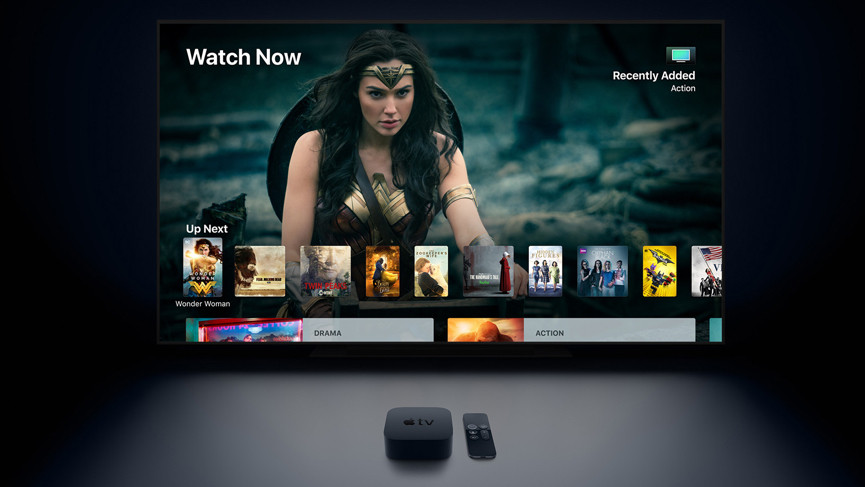
By the same token, a superb voice control system and/or app from which you can control everything is a much bigger and easier win. What’s more, there’s no time to go designing smart home security systems and weather stations because the companies that gain the most from all of this are going to be the ones that create the very best, most intuitive and useful voice assistants and controller hubs – and there’s no room in your household for more than one of them.
“It’s stressful enough trying to remember the names of all the people in your house as it is,” points out Hughes. “You don’t want to take in any more than one voice assistant. It would just get too confusing if you’re calling to Siri for one thing and Alexa for another. Now, they’re all trying to show that they’re the best personal assistant whether you’re at home or carrying it out and about.”
So, while we’ll doubtless have more than one of the big players alongside us at any moment, the chances are that we’ll choose just one assistant and stick with it. There’s no reason why this can’t become as fluid as our choice of mobile operating system, though. In fact, it’ll be easier to switch than with phones, if and when we tire of say, Alexa, because the tie-in to apps and the like isn’t quite the same. Many of the same smart devices in the home are – or certainly will be – voice assistant agnostic and we’re not buying through Apple or Google or Amazon in the same way that we’re forced to with mobile software.
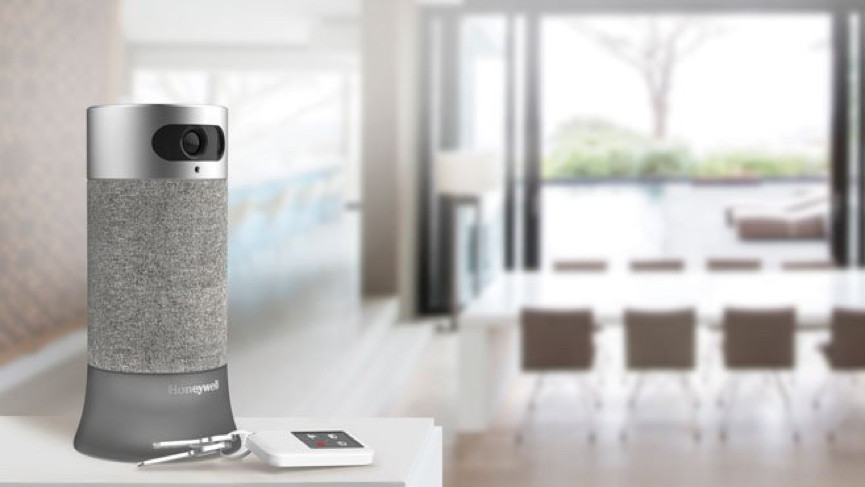
The little guys
All this is good news, then, for the fresh-out-the-blocks smart home device makers who won’t simply get gazumped by the far weightier competitors in the market. If you’re a case like Nest, of course, you might be lucky enough to get your payday, but there’s every reason that players both small and big can survive side by side – certainly while there’s still such a low level of penetration for connected devices in the home.
“Out of 24 million homes in UK, nearly a third don’t even have a thermostat of any kind,” stresses Honeywell’s James Coulson, global software solutions marcom director. “So, while the connected thermostat market is fantastic and growing, there is so much space before anyone really needs to compete.”
Honeywell is, of course, no small player in the heating market but Coulson doesn’t see the likes of Google and Apple as a problem for anyone in any area of the smart home at all.
Google and Amazon aren’t about to go out and build circuit boards for boilers
“There is no single smart home solution that will be wholly owned by an individual company. Google and Amazon have a great front end interface but they’re not going to go out tomorrow and build opentherm circuit boards for Worcester Bosch boilers. It’s just not what they do but we’re not naive. We know we‘re not going to do this ourselves and it doesn’t matter whose umbrella your smart home is working under. What matters to me is that the consumer is getting the benefit and the experience that matches with Honeywell’s ethos and we only partner with companies that uphold that.
“Once you’ve bought our product, you could, in theory, adopt Apple’s HomeKit system and you would never have to use our app again, and that’s okay. That’s a choice, and everyone in the business has to be open and embracing of that if we’re to get people engaging with the connected home and reaping the rewards from it.”
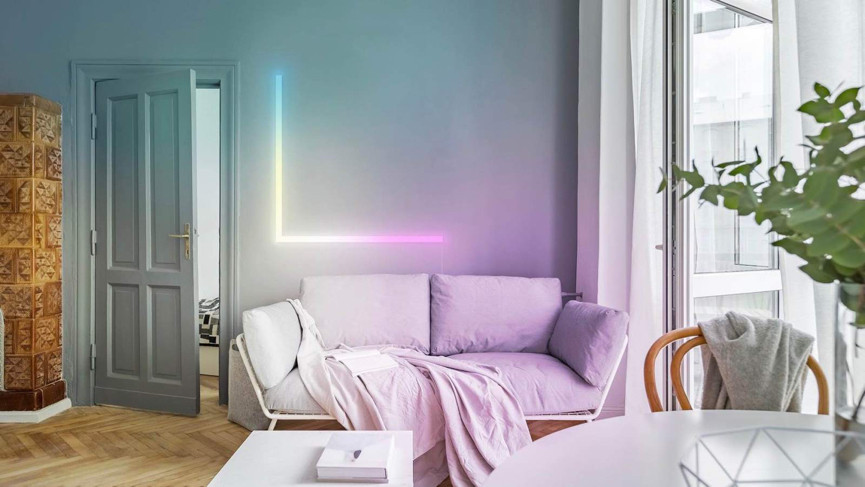
For consumers, then, there need be no fear in early adoption. Once you dig beneath the voice controllers, then, there’ll be no loss by choosing Evohome over Nest, Sonos over Echo nor Philips instead of Lifx. Choose a poor product and, sure, you might soon find yourself out in the cold when the company goes bust but there’s no reason, right now, that any company, small or big, can’t make a success in this space.
The only key is to make sure that whatever you do spend your money on is compatible with as many of the bigger players and standards as possible. If you suspect you’re an Apple person, then you’d better look for that HomeKit label.
“The best products that work with all of these will continue to grow,” agrees Lifx CEO Marc Alexander. “Lifx will continue to expand our offerings and welcome the larger companies to increase their support in countries where our devices are sold.
“With voice services and personal assistants, something completely new is happening – we are choosing who we talk to as well as what screens we work on. People invite Apple, Google, Amazon, Samsung, and/or Microsoft to be part of their families. Then these companies add their products to new countries everyday and improve the experience of our users.”
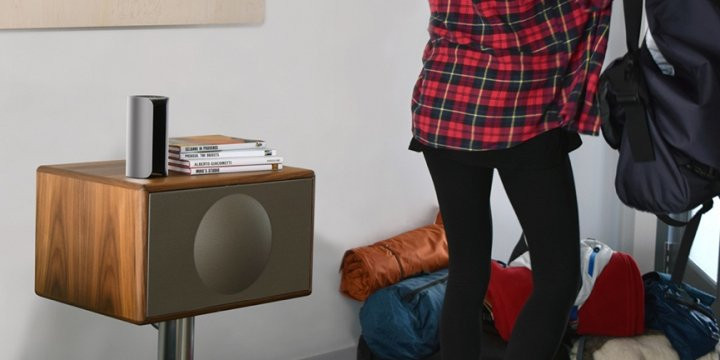
Space for startups
While it all sounds nice and threat-free for the smaller smart home players, it’s not the entire picture. While there’s clearly space for everyone to coexist at present, you do have to make sure that what you offer is competitive with the pack. Canary is a good example of having to tread a careful line between cost and services. One of the smart security camera leaders, Canary has to fight for survival against some far bigger fish like Nest, Netgear, Logitech and others, all of whom can not only absorb losses a lot easier but have a lot more existing systems and infrastructure which they can leverage at a far lower outlay.
Canary’s model was to sell their cameras at low prices and charge – like all the others – a few different levels of subscription fee to recoup the costs of supplying a video streaming platform. That didn’t leave the company with an awful lot of spare cash to play with, though, and it has since had to restructure its membership package in order to balance things a little more comfortably.
That’s not gone down entirely well with some of the users who have been very vocal about the loss of full video clips in exchange for fewer core features that are, apparently, not as desirable. It’s a tough situation for a smaller company and perhaps something of a marker for future smart home startups whom, although they have no reason to be put off by bigger competition, do need to consider how they’ll be able to operate when the larger players start offering more service for less outlay.
In the end, though, it seems, there’ll be no individual that achieves total domination under any of our roofs. While vast fields of space still exist in this burgeoning market, there’s plenty of room for all and, even when things get busier, there’s a decent chance that the tech giants will have shifted their focus to other areas of total domination. For now, and with any luck, forever, the only person owning the smart home will be the homeowner themselves.


